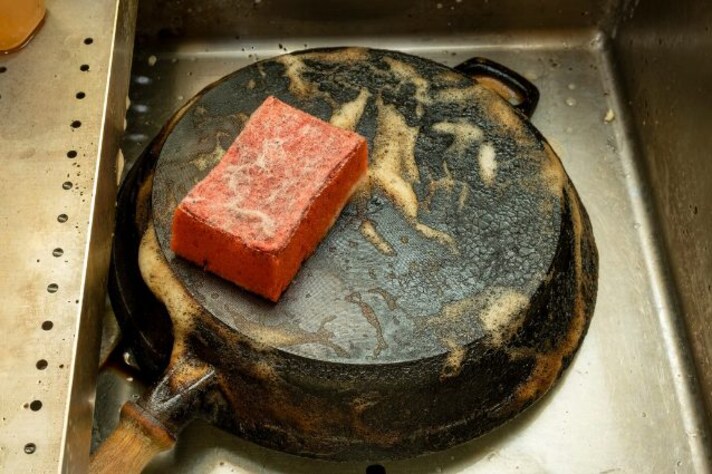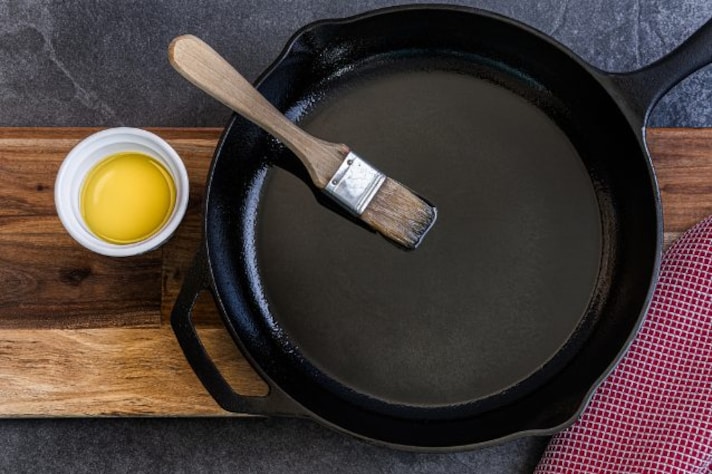
There’s a myth that has been passed down through the ages: never use soap on a cast iron skillet. It’s something we’ve all heard at some point, and for many, it’s been gospel. But guess what? That belief is more like a fairy tale—well, sort of. You can technically use soap, but should you? That’s a different story. In fact, the why behind avoiding soap is a little muddled, and while it's not entirely wrong, the reality is a bit more nuanced. It’s like those old kitchen legends that seem to make sense but get twisted over time. So let’s clear up this soapy conundrum—don’t worry, we’ll explain why it's a good idea to leave the soap bottle behind when cleaning your beloved cast iron skillet.
Soap and Cast Iron – What’s the Real Deal?
Let’s tackle the first part of the question: Why was soap shunned in the first place? The two big legends here are pretty simple, but they’ve been blown out of proportion over time. The first myth comes from the early days of cast iron cookware when pans were seasoned with animal fats. Soap, which used to be made from lye and animal fats, could potentially break down this seasoning, thus ruining the non-stick surface. The second myth stems from modern cast iron's excellent ability to develop a natural patina—a seasoned surface built up over time that makes it practically non-stick. If you’ve heard the warning that soap will “strip” that patina, you're not entirely wrong—but also not entirely right.
Here’s the thing: in theory, soap could affect the seasoning if it were left on too long, but the amount of soap you’d use in a typical cleaning session doesn’t really have the power to strip away that hard-earned seasoning unless you go overboard. Today’s soaps are far milder than those used in ancient times, and most modern soaps won’t break down the seasoning in any significant way. So, you can use soap—there’s no grand villain here. But, as we’ll explain, there’s still a reason why you might not want to.

Why You Still Shouldn’t Use Soap on a Cast Iron Skillet
But even though soap is technically safe for your skillet, there’s still the question: should you use it? The short answer is: no, it’s not really necessary. Here’s why. When you’re cleaning a cast iron pan, you’re trying to preserve its seasoning, that well-worn, slick layer that makes cooking a joy. Soap, while it won’t strip away your seasoning completely, can disrupt the oil and fats that help build that seasoning over time. If you use soap too frequently, it can slowly reduce the layer of oil, meaning your skillet won’t develop that perfect non-stick surface.
Let’s talk about the seasoning process itself. Cast iron pans work by creating a thin coating of oil that bonds to the metal through heat. The more you cook with the pan, the more that seasoning improves, becoming smoother and more effective. Soap, even in small doses, can interfere with this process by removing some of the oils, forcing you to reapply layers of seasoning more often. Plus, soap is a bit of a buzzkill when it comes to the residual flavors in your skillet. The oils left behind in a well-seasoned pan can actually enhance your dishes by subtly infusing flavors into the food you cook. Soap? Not so much.
How to Properly Clean Your Cast Iron Skillet (And How Often)
Now that you’ve decided to ditch the soap (or at least keep it to a minimum), let’s get into the right way to clean your cast iron skillet. After cooking, let your skillet cool down a bit, but not completely. Warm cast iron is easier to clean because it loosens up any food stuck to it. Once it’s warm, use a stiff brush or a sponge to scrub off any residue. If you’ve got some particularly stubborn bits, you can use a little coarse salt mixed with a splash of water to help scrub them away. This technique is commonly referred to as the "salt scrub," and it works wonders.

If there's stubborn grease or gunk, a light rinse with hot water should do the trick. For some, a quick rinse with water after each use is enough to keep the pan in good condition, as long as it’s properly dried and re-oiled afterward. After cleaning, be sure to dry your skillet immediately to avoid any rust. You can either air dry it or heat it on the stove to evaporate any remaining moisture. Finally, rub a thin layer of oil over the entire surface—just enough to coat it lightly. This will help preserve the seasoning and keep your skillet performing at its best.
As for how often you should clean your cast iron skillet, it really depends on how much use it gets. After each use, you’ll want to give it a good clean, but if you’re not using it daily, you can probably get away with a quick wipe-down between major cleanings. Just be sure to check the surface every once in a while, and if it starts to look a little dry or rusty, re-oil it and give it a thorough cleaning.
;Resize,width=767;)
